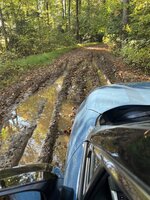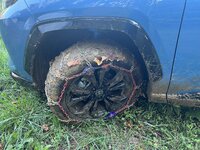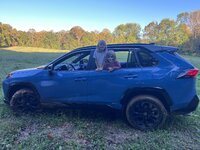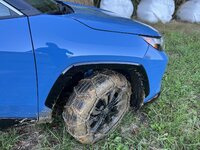My current work car is a Hyundai Sonata, prior to that a Hyundai Accent. Accent finally kicked it with 572k on it, current Sonata is about to hit 450k. I covered Montana, Wyoming, Idaho, eastern WA, and eastern Oregon for many years. I've been to every corner of Montana in those cars, hit snow drifts deep enough to rip the front spoiler off the Accent... never skipped a beat. Been on many many miles of dirt roads going to ranches from Wibaux, to Rapelje,to Libby, and everywhere in between. Our work fleet is exclusively Hyundais now, and unless they were wrecked, they've all hit over 425k very easily. Mine gets 28mpg no matter how I drive it. 3.3 V6. Newer ones that other guys drive are getting over 40mpg on the highways, upper 30s in town. Can't really say anything bad about them. Snow tires in the winter are a must, they'll go places you never thought they would lol.Got a different job where I will be traveling about 20k miles a year. I will use my personal car and be reimbursed at the IRS rate of $0.625/mile.
We currently have a diesel Jeep Rubicon with 37s on it - not good for road trips, but I'll cry if I part with it. Also have a 2008 Chevy Silvarado with 135k miles on it - not the best getting 17mpg for these long trips. Even at 17 mpg and current garbage gas prices, I'm making about $0.38/mile not deducting for tires, oil changes, brakes. I do my own oil and brakes, so they don't cost much. Tires will be an extra ~$1000 thrown into the mix every 2 or 3 years, which isn't a huge game changer. Hopefully nothing major happens with the vehicle. I feel like I need a truck to go along with the Jeep.
I'm debating getting a third vehicle - an efficient car. I live up a decently rough dirt road, will be driving in MT winter, and could have to drive a good ways on some dirt roads to get to some ranches, etc. If I know it's going to be really rough or snowy, I could always take the Jeep or truck.
Also thinking of getting a new truck and only having two vehicles.
I will do the math on insurance and registration on three vehicles vs two. Might be cheaper to drive a new truck with two vehicles getting decent gas mileage than an efficient car with three vehicles.
All that to ask the question what are some good cars that won't vibrate to pieces on dirt roads?
I'm on the fence about getting a hybrid. Can't help but feel like the technology isn't ironed out in them and I'll be left with a pile of junk in 10 years. Thoughts?
I can't help but think somebody is going to come out with an engine soon that makes fossil fuel powered cars obsolete. Saw some stuff about a hydrogen engine, but know nothing about it and it will probably be 10 years until they are readily available anyway - I just know how it goes when I buy a new hunting gadget, there is a brand new shinier one out a week later.
I can't believe I'm considering a Hyundai. The Elantra is definitely the best bang for the buck in MPG, warranty, and cost. I hear that they got excellent consumer reports as well.
With the new 5.3L Sierra only getting 21 mpg, it's almost like I should just drive my current truck into the ground getting 17 mpg. The diesel option initially really grabbed my attention, but with the current fuel costs and them seemingly trying to phase out diesel I don't know if it's a good idea. Also increased maintenance costs on them.
A list of everything I've thought of is listed below
Any other advice is appreciated.
Thanks!
View attachment 469978
Navigation
Install the app
How to install the app on iOS
Follow along with the video below to see how to install our site as a web app on your home screen.
Note: This feature may not be available in some browsers.
More options
Style variation
You are using an out of date browser. It may not display this or other websites correctly.
You should upgrade or use an alternative browser.
You should upgrade or use an alternative browser.
High Mileage Vehicle for Work
- Thread starter treillw
- Start date
bigeyedfish
Lil-Rokslider
- Joined
- Sep 22, 2021
- Messages
- 152
Sure. I'm going to use round numbers, so don't take this as gospel. Just trying to illustrate a point.Could you elaborate on these two points? Thanks!
If Fed rate is $0.625/mi and you're driving 20,000 miles/year, then you're pulling in $12,500/year to cover fuel, consumables, insurance, and depreciation. Assume a $30,000 vehicle. Linear depreciation for 5 years means the vehicle is losing $6,000 in value each of the first five years you own it. At 20,000 miles and 30 mpg, you'll be around $2,500 spent on fuel per year at current gas prices. That leaves $3,500 to cover insurance, maintenance, tires, or extra money in your pocket.
If the vehicle is still reliable after 5 years and 100,000 miles, keep it and enjoy a couple/few years with $6,000 bonus. If reliability is getting questionable, sell it and start over since it has already paid for itself.
I say diesel or regular gas only due to the extra BS that comes along with premium/high octane gas. Premium fuel costs more, is harder to find, and the engines are tuned more aggressively, which often equates to increased maintenance costs. I could be talked into a hybrid, but I wouldn't start there.
Yoder
WKR
- Joined
- Jan 12, 2021
- Messages
- 2,196
My buddy at work always buys Hyundai. He's had two Elantras and a Sonota both were great cars. One thing to consider if you intend to put a lot of miles on your vehicle is timing belts. I never buy a vehicle that has one, only chains. I don't want to change them myself or pay $1k every 80-100k miles for someone else to do it. The cost of tires are bad enough.
The Accent I had had a timing belt, it snapped at 572k coming out of Missoula. The Sonata has a chain. Interference vs non interference is a big deal when something goes wrong.My buddy at work always buys Hyundai. He's had two Elantras and a Sonota both were great cars. One thing to consider if you intend to put a lot of miles on your vehicle is timing belts. I never buy a vehicle that has one, only chains. I don't want to change them myself or pay $1k every 80-100k miles for someone else to do it. The cost of tires are bad enough.
- Joined
- Dec 20, 2019
- Messages
- 1,195
The new Ford Maverick hybrid may be an option. Can handle light truck duties. 42 city 33 highway MPG. Base price starts at 22K. The down sides are that it's new and may have bugs. It's also very popular and hard to find.
sodaksooner
WKR
Not a traction issue here in OK. Mine is a sport and it is WAAAYYYY too low....lol.Get snows for BMW, THEY WILL CHANGE YOUR LIFE.
tdhanses
WKR
- Joined
- Sep 26, 2018
- Messages
- 6,106
I’d look at a gas Sub Crosstrek, base model and for $23k or so. Put some good AT tires on it and roll. Base models today have the same options as loaded vehicles had 15 years ago, if not more.
I don’t think the premium in price for the hybrid version would be worth it.
I don’t think the premium in price for the hybrid version would be worth it.
But can you drive down the highway with a fully erected truck bed tent in the back?My Ram 1500 Eco-diesel averages 28mpg highway with 35s and a 6" BDS lift kit on it. Got 31mpg stockView attachment 470245View attachment 470247
Where's Bruce?
WKR
- Joined
- Sep 22, 2013
- Messages
- 6,387
You cannot use the words "erect", "bed" and "...in the back" in the same sentence on a family site.
Disclosure first: I have worked for a Toyota dealer for 28 years. I'm not a salesman but I do work as a trainer for our sales department so yes, there are some biases here but I'll give you some straight info.
On your concern about hybrids not being sorted out... Toyota has been doing this for more than 20 years. We still see first gen Prius's in our service department and most have NOT had their battery replaced. Reliability is completely off the charts.
Here's some things to consider:
- The "transmission" isn't a conventional transmission. It is called a "power split device" and there is almost nothing that can break. You never see a Toyota hybrid with a bad transmission. It just can't happen.
- The brakes are designed to last in excess of 150K miles because of the regenerative braking system. The pads don't contact the rotors until it is under 10 MPH which saves brake pads and means less brake dust.
- There is no starter, alternator or drive belt. The hybrid system means these components don't even exist so maintenance costs are lower.
- The AWD models don't have a driveshaft to the rear of the vehicle. There is a separate electric motor over the rear axle.
Is it going to stand up to hard gravel roads? It will as well as any other unibody vehicle. Honestly though unibody does get rattled pretty badly which is why body on frame trucks and SUVs are still around (that and things like towing and real off-roading).
I have owned a pickup truck since 1986 until this past spring when gas went to $4.00/gallon. My lifestyle had to change to deal with a small SUV. I bought a RAV4 hybrid and I'm totally hooked. I'm getting a consistent 41-42 MPG (real world... not off the gauge). I put 25K miles per year on the thing and I'm saving a ton of money over my 14 MPG Tundra that I sold.
My big worry was how to handle mud. My hunting area has a very long stretch of mud that is 4-8" deep, depending on the season and I was worried I wouldn't be able to get through it in this vehicle. I bought a set of snow chains and gave it a shot. I paddled through it easily. I might be the only guy I know who goes mudding in a RAV4 hybrid but I can say with authority that it works.
My daughters insisted on being in the pic and we had just come from a Halloween party.
On your concern about hybrids not being sorted out... Toyota has been doing this for more than 20 years. We still see first gen Prius's in our service department and most have NOT had their battery replaced. Reliability is completely off the charts.
Here's some things to consider:
- The "transmission" isn't a conventional transmission. It is called a "power split device" and there is almost nothing that can break. You never see a Toyota hybrid with a bad transmission. It just can't happen.
- The brakes are designed to last in excess of 150K miles because of the regenerative braking system. The pads don't contact the rotors until it is under 10 MPH which saves brake pads and means less brake dust.
- There is no starter, alternator or drive belt. The hybrid system means these components don't even exist so maintenance costs are lower.
- The AWD models don't have a driveshaft to the rear of the vehicle. There is a separate electric motor over the rear axle.
Is it going to stand up to hard gravel roads? It will as well as any other unibody vehicle. Honestly though unibody does get rattled pretty badly which is why body on frame trucks and SUVs are still around (that and things like towing and real off-roading).
I have owned a pickup truck since 1986 until this past spring when gas went to $4.00/gallon. My lifestyle had to change to deal with a small SUV. I bought a RAV4 hybrid and I'm totally hooked. I'm getting a consistent 41-42 MPG (real world... not off the gauge). I put 25K miles per year on the thing and I'm saving a ton of money over my 14 MPG Tundra that I sold.
My big worry was how to handle mud. My hunting area has a very long stretch of mud that is 4-8" deep, depending on the season and I was worried I wouldn't be able to get through it in this vehicle. I bought a set of snow chains and gave it a shot. I paddled through it easily. I might be the only guy I know who goes mudding in a RAV4 hybrid but I can say with authority that it works.
My daughters insisted on being in the pic and we had just come from a Halloween party.
Attachments
I wish I could find a RAV4 hybrid!Disclosure first: I have worked for a Toyota dealer for 28 years. I'm not a salesman but I do work as a trainer for our sales department so yes, there are some biases here but I'll give you some straight info.
On your concern about hybrids not being sorted out... Toyota has been doing this for more than 20 years. We still see first gen Prius's in our service department and most have NOT had their battery replaced. Reliability is completely off the charts.
Here's some things to consider:
- The "transmission" isn't a conventional transmission. It is called a "power split device" and there is almost nothing that can break. You never see a Toyota hybrid with a bad transmission. It just can't happen.
- The brakes are designed to last in excess of 150K miles because of the regenerative braking system. The pads don't contact the rotors until it is under 10 MPH which saves brake pads and means less brake dust.
- There is no starter, alternator or drive belt. The hybrid system means these components don't even exist so maintenance costs are lower.
- The AWD models don't have a driveshaft to the rear of the vehicle. There is a separate electric motor over the rear axle.
Is it going to stand up to hard gravel roads? It will as well as any other unibody vehicle. Honestly though unibody does get rattled pretty badly which is why body on frame trucks and SUVs are still around (that and things like towing and real off-roading).
I have owned a pickup truck since 1986 until this past spring when gas went to $4.00/gallon. My lifestyle had to change to deal with a small SUV. I bought a RAV4 hybrid and I'm totally hooked. I'm getting a consistent 41-42 MPG (real world... not off the gauge). I put 25K miles per year on the thing and I'm saving a ton of money over my 14 MPG Tundra that I sold.
My big worry was how to handle mud. My hunting area has a very long stretch of mud that is 4-8" deep, depending on the season and I was worried I wouldn't be able to get through it in this vehicle. I bought a set of snow chains and gave it a shot. I paddled through it easily. I might be the only guy I know who goes mudding in a RAV4 hybrid but I can say with authority that it works.
My daughters insisted on being in the pic and we had just come from a Halloween party.
Thanks for the info.
I just tried to send you a reply to your PM but somehow, got flagged as spam. My e-mail is my username and I use gmail so shoot me a note and I'll give you a detailed answer.I wish I could find a RAV4 hybrid!
Thanks for the info.
This is the best advice here IMO.I've been commuting 120 miles per day for over 10 years. IMO get something as cheap as possible that is relatively comfortable. I put 325k on a corolla (which I also took elk hunting multiple times) and picked up a used bmw328i after the Toyota was retired which Ive put 140k on. I also own a Jeep. Honestly the Toyota did better on snowy roads, unless the snow was really deep, although I pushed snow up to 6" deep with it (powdery). That said the BMW doesn't so have driven the jeep some lately when the weather is bad. 80%+ of the time the weather will be fine for a small commuter. Plus 30+MPG is really nice. That said we have a hybrid highlander that is AWD and seems to handle bad roads fine and gets like 31mpg. It is a bigger vehicle, along the size of a Grand Cherokee or Durango. Maybe a RAV4 hybrid. They get over 40mpg.
View attachment 470116
If you buy new you will lose the most money. Immediate depreciation plus the excellerated depreciation you see in the first 5 years with new cars will make you take a bath. What is a 30k car worth 5 years post purchase with 100-120k? 15k or less? If I bought a used car in 5 to 6k range with 120-140k miles and put the same mileage on, you would be way ahead in money.
My goal in your shoes would be the cheapest vehicle possible, combined with comfort and reliability. On the really shitty weather days you could take your truck.
You get to write off the purchase and any repairs\maintenance and fuel.
Sent from my SM-G986U using Tapatalk
sodaksooner
WKR
This is why we went with a Toyota Hybrid SUV. They have been doing it a long time!!! Full size SUV getting 31.5mpg. Another nice thing about the Toyotas is that the premium for a Hybrid is not as big as I thought it would be. No mud for ours, at least on purpose, my wife would kill me.Disclosure first: I have worked for a Toyota dealer for 28 years. I'm not a salesman but I do work as a trainer for our sales department so yes, there are some biases here but I'll give you some straight info.
On your concern about hybrids not being sorted out... Toyota has been doing this for more than 20 years. We still see first gen Prius's in our service department and most have NOT had their battery replaced. Reliability is completely off the charts.
Here's some things to consider:
- The "transmission" isn't a conventional transmission. It is called a "power split device" and there is almost nothing that can break. You never see a Toyota hybrid with a bad transmission. It just can't happen.
- The brakes are designed to last in excess of 150K miles because of the regenerative braking system. The pads don't contact the rotors until it is under 10 MPH which saves brake pads and means less brake dust.
- There is no starter, alternator or drive belt. The hybrid system means these components don't even exist so maintenance costs are lower.
- The AWD models don't have a driveshaft to the rear of the vehicle. There is a separate electric motor over the rear axle.
Is it going to stand up to hard gravel roads? It will as well as any other unibody vehicle. Honestly though unibody does get rattled pretty badly which is why body on frame trucks and SUVs are still around (that and things like towing and real off-roading).
I have owned a pickup truck since 1986 until this past spring when gas went to $4.00/gallon. My lifestyle had to change to deal with a small SUV. I bought a RAV4 hybrid and I'm totally hooked. I'm getting a consistent 41-42 MPG (real world... not off the gauge). I put 25K miles per year on the thing and I'm saving a ton of money over my 14 MPG Tundra that I sold.
My big worry was how to handle mud. My hunting area has a very long stretch of mud that is 4-8" deep, depending on the season and I was worried I wouldn't be able to get through it in this vehicle. I bought a set of snow chains and gave it a shot. I paddled through it easily. I might be the only guy I know who goes mudding in a RAV4 hybrid but I can say with authority that it works.
My daughters insisted on being in the pic and we had just come from a Halloween party.
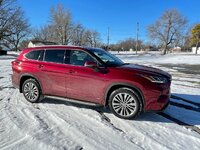
I would tend to agree with you, but have you looked at used car prices lately? Vehicles that are 2 or 3 years old and have 20-60k miles on them are often a few thousand less than new, or even more than new.If you buy new you will lose the most money. Immediate depreciation plus the excellerated depreciation you see in the first 5 years with new cars will make you take a bath. What is a 30k car worth 5 years post purchase with 100-120k? 15k or less? If I bought a used car in 5 to 6k range with 120-140k miles and put the same mileage on, you would be way ahead in money.
Yes I'm familiar with them. I've bought 3 cars in the last 2+ years that are just what I'm talking about. These are cars with over 100k in miles and in good shape, two Honda Accords and one Camry, all between $4000-$6000. They aren't new and cool but they are reliable, get good mileage, are relatively safe and fairly inexpensive to maintain. They will last another 100k must likely and be well worth the money.
I reread your post again. I am familiar this cars that are 2-3 years old. They are overpriced and not worth the purchase. I'm thinking about cars that are closer to 10 years old and have been well taken care of.
Sent from my SM-G986U using Tapatalk
I reread your post again. I am familiar this cars that are 2-3 years old. They are overpriced and not worth the purchase. I'm thinking about cars that are closer to 10 years old and have been well taken care of.
Sent from my SM-G986U using Tapatalk
Last edited:
I'll have to try to find one.Yes I'm familiar with them. I've bought 3 cars in the last 2+ years that are just what I'm talking about. These are cars with over 100k in miles and in good shape, two Honda Accords and one Camry, all between $4000-$6000. They aren't new and cool but they are reliable, get good mileage, are relatively safe and fairly inexpensive to maintain. They will last another 100k must likely and be well worth the money.
I reread your post again. I am familiar this cars that are 2-3 years old. They are overpriced and not worth the purchase. I'm thinking about cars that are closer to 10 years old and have been well taken care of.
Sent from my SM-G986U using Tapatalk
That's the Dave Ramsey philosophy and if that's your way, you're right. The new dynamic of the automotive industry is really weird right now. Two to three year old cars are selling for more than they did when they were new. People think it doesn't make sense but it actually does. It is pure supply and demand. New cars became scarce so the prices necessarily rose. They rose well above sticker price in many cases. The only alternative in the market was late model used cars and a 3 year old vehicle normally should be well under the price of new. Well, new cars were actually selling $10K above sticker so selling a used one for $10K less was the reality of the market.Yes I'm familiar with them. I've bought 3 cars in the last 2+ years that are just what I'm talking about. These are cars with over 100k in miles and in good shape, two Honda Accords and one Camry, all between $4000-$6000. They aren't new and cool but they are reliable, get good mileage, are relatively safe and fairly inexpensive to maintain. They will last another 100k must likely and be well worth the money.
I reread your post again. I am familiar this cars that are 2-3 years old. They are overpriced and not worth the purchase. I'm thinking about cars that are closer to 10 years old and have been well taken care of.
Sent from my SM-G986U using Tapatalk
The problem is going be be what happens when supply and demand eventually reach equilibrium. At the point that new cars are not marked up heavily, used car prices will settle accordingly. That means those who purchased both new and used cars during the height will suffer HUGE depreciation losses.
The thing to keep in mind is that those "losses" are only paper losses. If the vehicle meets your needs today and the value to you exceeds the price today, then it is still a "good deal". You only lose if you decide to sell after a short time. If that is the case, then you didn't do a good job of distinguishing between a "want" and a "need" in the first place.
We've been told to expect to operate in a near-zero ground stock inventory for at least the next 12 months. Prices may settle a bit but high demand cars like the hybrids will likely stay high. Just have to hope there are no further market disrupters in the meantime.
Two to three year old cars are selling for more than they did when they were new. People think it doesn't make sense but it actually does.
The part of it that doesn't make sense is you can still buy a new vehicle for MSRP (or well below that, like my Jeep) if your patient.
Maybe for some people who want/need it now and don't care about money, it makes sense.
But paying more for used than new sure doesn't make sense to me!
Similar threads
- Replies
- 13
- Views
- 887
- Replies
- 24
- Views
- 2K
- Replies
- 48
- Views
- 2K
- Replies
- 44
- Views
- 3K
Featured Video
Latest Articles
- Banning Hunting Technology in Idaho?
- Best Gear of the year Rokslide staff edition 2025 Article
- Hunting Gear: Insights from Western Hunting Expo
- Black Diamond Alpine Start Insulated Hoody Review
- Tenacity Firearms with Andrew Whitney
- The Thrill of Moose Hunting with Henry Ferguson
- Final Rise Upland Hand Muff Review
- Kodiak Deer Hunt Round II
- Killing a Timber Giant
- Titanium Suppressor Shootout

